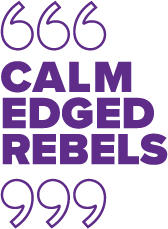We’ve all sat in meetings where nothing gets agreed and animosity abounds. Season 4 episode 2 of our podcast talks about the benefits disagreements bring.
Delving into research about curious conversations, has led us to read more on the importance of productive disagreements. But what constitutes a productive disagreement? And how can we make sure it’s constructive?
A productive disagreement is when two or more parties enter a conversation with a mutual outcome in mind. They walk into the debate understanding the true value of remaining open minded and set aside that ingrained human trait to ‘win the argument’.
To come to a result that has to be a consensus means taking time to air differences of opinion, whether they were comfortable or not. Ultimately, it’s about being skilled in the art of productive disagreement to the point that these disagreements don’t feel like disagreements at all.
Here are our tips on creating an environment where debate is fruitful in finding common ground and outcomes, while avoiding those conversations where people just talk – or argue – for the sake of it.
Pick your battles
Sometimes you have to back-off to win the war. Avoid the trap created by social media that allows us to have anonymous, distanced opinions on any subject or issue raised. There are some things you just don’t need to, or feel you should, get involved in because you’re not the expert or interested in that area.
Revisit what outcome that together you’re trying to achieve for the greater good. Ask yourself those important questions: Why am I raising this? Am I going to make some sort of difference? What am I trying to achieve from this conversation? Do I need to enter this conversation?
Perfect Timing
Pick your moment. If you’re trying to influence someone, the worst thing to do is to raise an issue or share your opinion strongly in an environment where they might feel threatened, or that you’re undermining them in any way.
Be prepared
How do we engage leaders in conversations with us that encourage productive disagreement, so they understand where we’re coming from?
Don’t waffle in an argument or raise a disagreement just for the sake of it. This isn’t productive and doesn’t add value.
If you’re going to challenge, challenge properly. Step in with a good solid case based on facts and experience, because fluffy arguments just won’t work – for you, the team or the leaders involved. No matter how difficult a discussion might be, a measured approach with reasoning and risk in mind gives the courage to step forward.
Only human
Sometimes when we address leaders, we need to be vulnerable and open ourselves. And remember, leaders don’t always have all the answers and are not as imposing or intimidating as you think. Often, they just crave a bit of honesty, something they may not always hear simply because people are afraid of them. They appreciate someone, whatever their position or level from within the organization, telling them the truth.
Self-awareness
Being self-aware helps you evaluate yourself in relation to others. Check in what you’re about, especially what is and isn’t important to you. Take a moment to reflect as it’s easy to get caught up in the moment.
Quash any inner need to showcase potential power through knowledge. Those with intellectual humility tend to have a broader sense of outcomes and able to understand the rationale of others.
R-E-S-P-E-C-T
The majority of people attend meetings with positive intent. Always use respectful language and enter each conversation or discussion with respect for others, their opinions and, most importantly, for yourself. To quote Buster Benson: “Be willing to be wrong. Be excited even! It means you’ll be more right going forward.”
Look at things differently
Find words and phrases that turn confrontation into curious conversations. When you feel the temperature rising as a heated argument appears on the horizon, you could say (to quote Brian Grazer): “I’ve never thought about it that way before. What can you share that would help me see what you see?”
Silence is golden
Curious individuals care about other’s viewpoints and are passionate about allowing different voices to enter their circle. Different viewpoints enrich our knowledge base and being silent (an anagram of listen) gives time to digest and understand what’s being said. A pause invites others to join the dialogue and helps you think before you speak.
Find a Champion
Productive disagreement depends on context, topic and your relationships with the people you’re talking to. If you don’t feel you’re the right person to raise a point, find an influential advocate to do it for you. Alternatively, find someone who knows and understands the people involved. Run through your thoughts with them to gauge how conversations and objections might play out.
You can listen to the conversation to hear these tips and our conversation around productive disagreement here and if you want to find out more about joining us for a few days in March at The Comms Retreat you can find out more here too!






